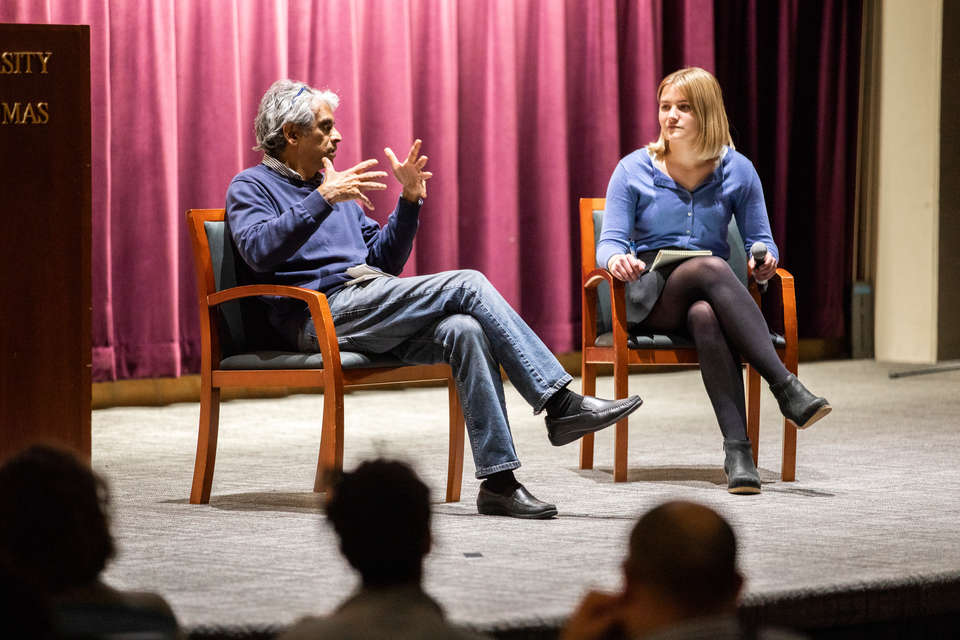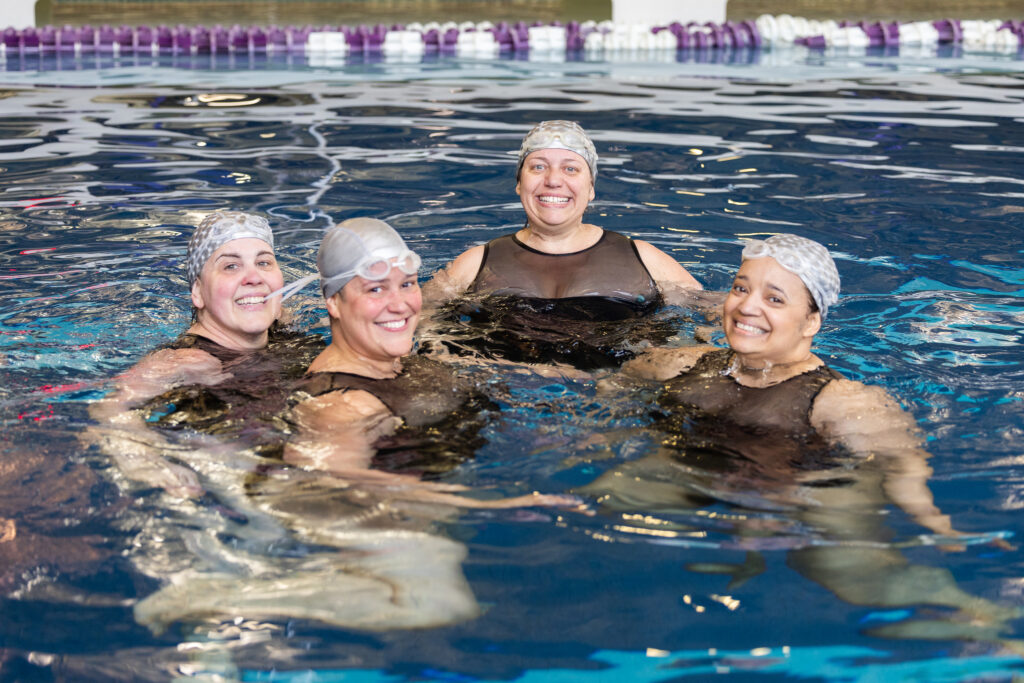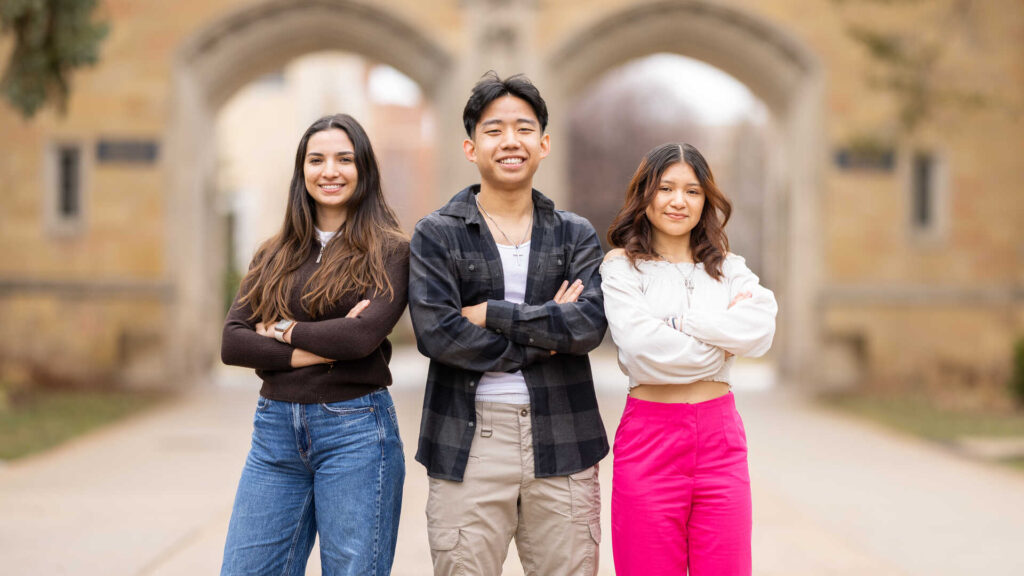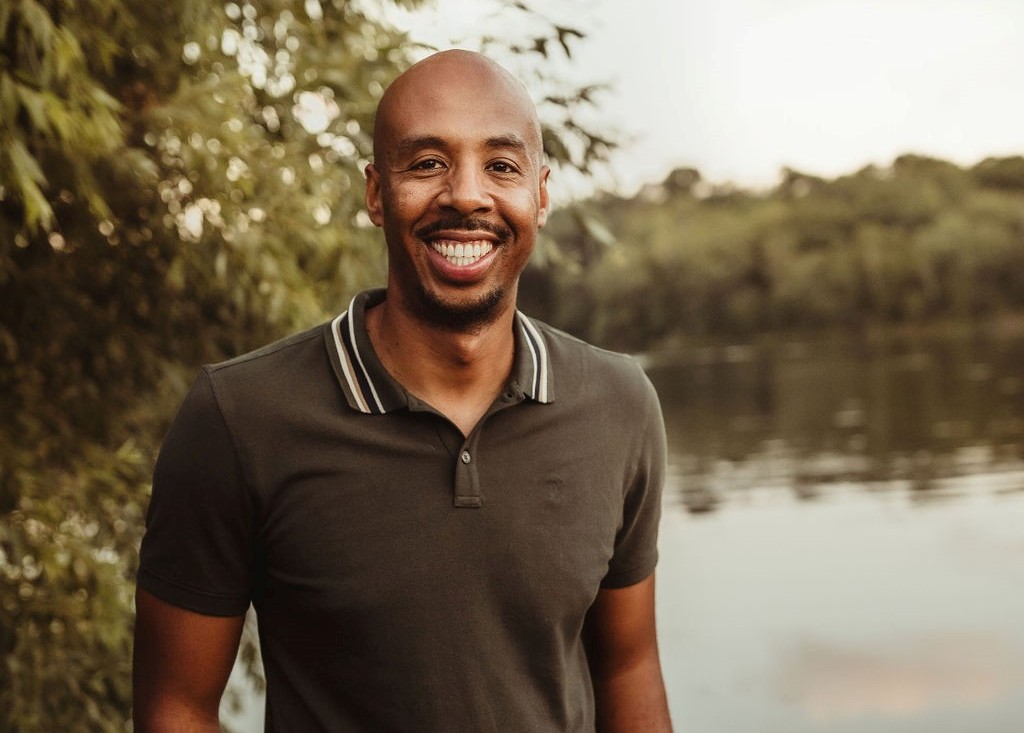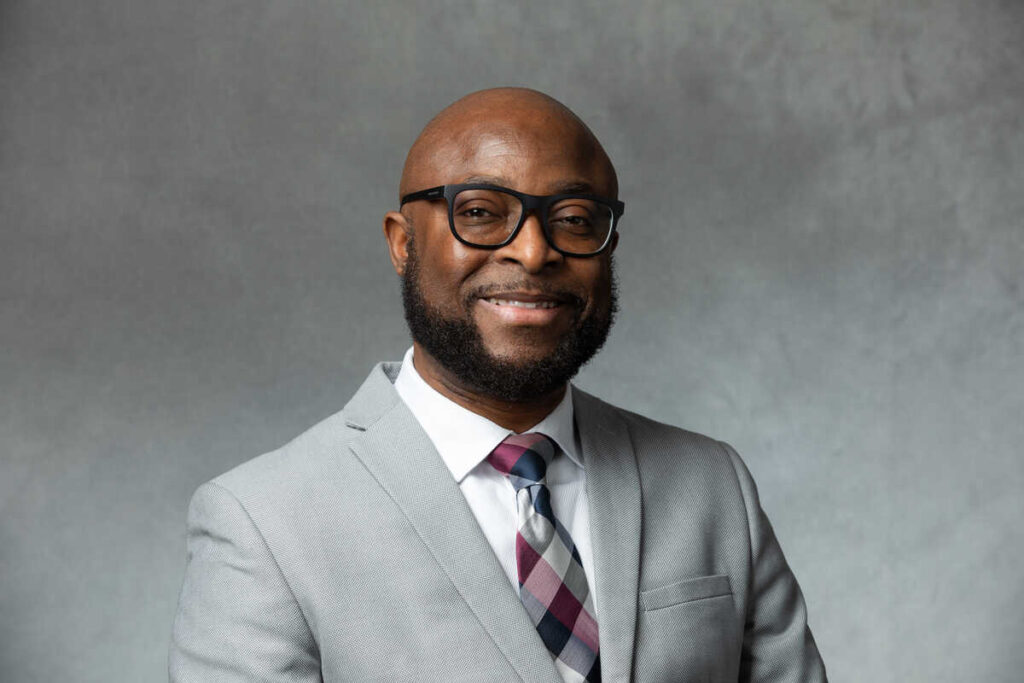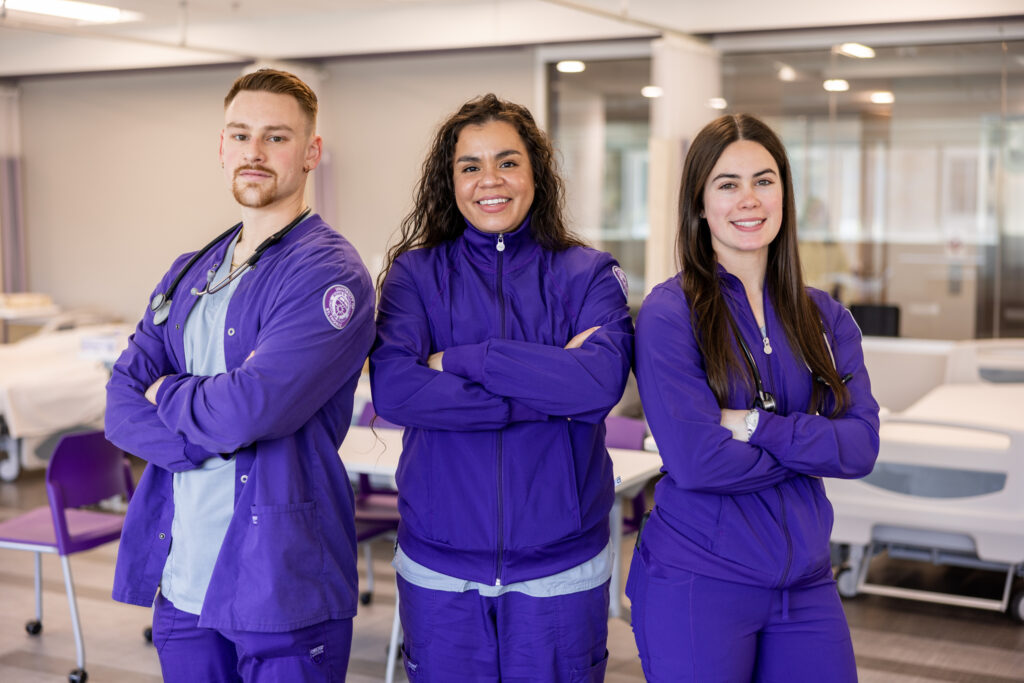More than 300 St. Thomas first-year students have done something no Tommies have ever done before: They’ve dedicated their J-Terms to a First-Year Experience at St. Thomas.
Split between students who take Foundations for College Success and Changemaking for the Common Good, 315 first-years engaged with classmates and instructors in exploring how to make the most of their St. Thomas experiences. Going forward, the First-Year Experience is designed to be taught at the start of students' experience at St. Thomas. Students will continue to take the Foundations for College Success course, and have several different options to complete the Learning Community Requirement (including the Changemaking for the Common Good course.)
“First-Year Experience is without a doubt the most progressive and inclusive classroom setting I’ve encountered,” said first-year Brock Munsterteiger, who took part in Foundations for College Success. “The course touches on the most important aspects of college life, as well as delves into personal and social well-being both on and beyond campus life.”
Students and instructors met twice a week for two-hour, in-class sessions and then had additional online learning, as well as attended four evening events throughout J-Term. Students also created an action plan for their final project of how they can bring ideas they’ve developed in the course into practice. Whichever course they took, students dedicated themselves to learning how they can be as successful as possible in their time at St. Thomas.
“This Foundations for College Success course really focuses on our students as whole beings – body, mind and spirit,” said Student Affairs’ Vern Klobassa, who designed the course along with Health and Exercise Science Department Professor Lesley Scibora. “It is designed to help students to be reflective on how they can sustain their holistic well-being and get the most out of their college experience.”
“This class allows people to show the passion that they have for a topic and get others to become aware of the problem,” said Brennan Sheridan, a Changemaking for the Common Good student. “Even spreading awareness about certain issues is a crucial part of changemaking, and I think it is awesome that St. Thomas is offering a class like this.”
Setting the foundation
St. Thomas students benefit by starting out their college careers by understanding the university’s mission and, as Scibora put it, “who we are at St. Thomas – our institutional DNA.” Foundations for College Success does exactly that, helping students engage with what advancing the common good means to them, as well as exploring topics such as career and vocation, academic success, campus engagement, and well-being topics such as dealing with stress, sleep, alcohol and sexual violence.
“I especially enjoyed looking at budgeting, putting mindfulness practices to work and developing intercultural skills for future use,” said Munsterteiger, whose final project is focused on creating a hypothetical club on campus dedicated to changemaking.
“The beauty of this course is that the content is central to our mission and covers adulting in ways that are necessary and practical for maximizing one’s time in college,” added Andrew Puroway, one of the instructors for Foundations for College Success.
Developing changemakers
As an Ashoka U Changemaker designated campus, changemaking has become a part of daily life at St. Thomas in many ways. Changemaking for the Common Good gives first-year students a deep dive into changemaking concepts and how they might help breathe life into their own college experiences.
“The main objective is for students to understand what changemaking is and what this looks like on a personal, local, national, global scale, so that they will leave the course understanding how they can be change agents who make a positive social impact on the common good,” said Jessica Hodge, Sociology and Criminal Justice Department associate professor and designer of the course. “If we want to create a culture of service at the university in which our students and graduates work to have a positive impact on the common good, then it is imperative that students understand what this means and how they can do this right from the start, rather than when they are in their third or fourth year.”
For Sheridan, the course has meant a chance not only to explore the changemaking programs and organizations at St. Thomas and around the Twin Cities, but to enforce a personal commitment to change at any level.
“The most important idea that has stood out to me is the fact that it does not matter how small your problem is or how small the impact of your solution. If you believe in fighting for a cause, taking actions from even a personal standpoint makes you a changemaker,” he said. “All movements start small and if no one was to stand up for what they believe because they don’t believe their individual choices will have an impact, then there wouldn’t be changemakers.”
